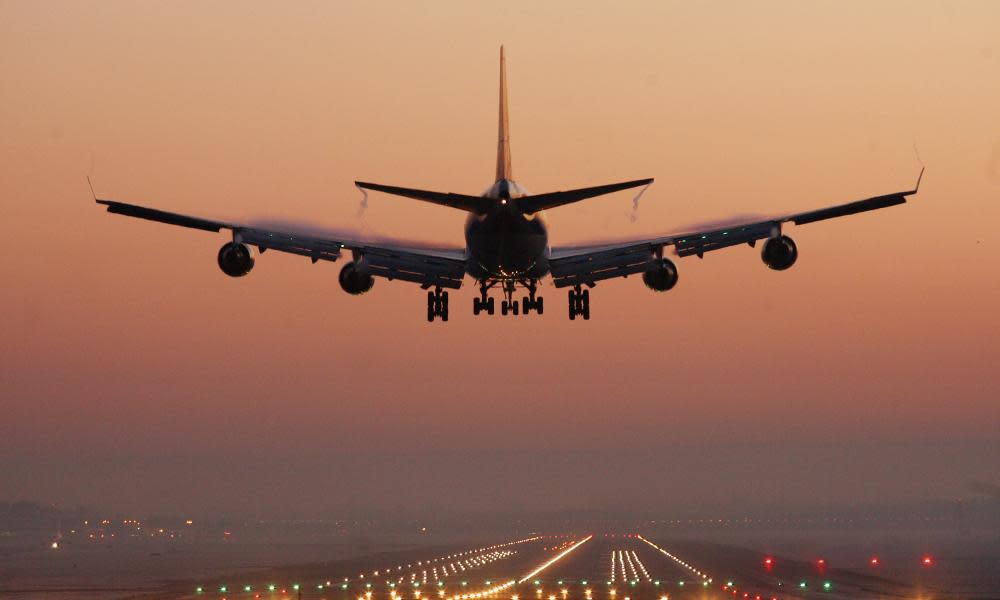Why do aviation addicts fly in the face of reason?

In your 10 charts explaining the climate crisis (21 September), aviation is targeted as a “difficult problem” to solve. Given that the global climate strike was organised by, among others, the student climate network, students need to ask their academic staff how much they are cutting down on flying to conferences. The Tyndall Centre for Climate Change Research states that academics are among the highest emitters of greenhouse gas emissions. And while universities are increasingly committed to a green agenda for their own organisations in terms of carbon reduction, recycling and sustainable living, there is little evidence that academics are cutting down on their frequent flying habit.
Some may argue that face-to-face meetings at conferences around the world are necessary for the exchange of ideas and production of knowledge. However, research at the University of British Columbia suggests that there is no clear relationship between those who fly more and the quality of research. The University of Lund in Sweden is exceptional in requiring staff to set out concrete personal reduction targets. Isn’t it time that all UK universities followed suit and that students held their lecturers to account by asking them what steps they are taking to fly less?
Celia Roberts
Professor emerita, King’s College London
• It is good to see your week of articles regarding global warming concluding with graphs to support the case. Sadly, you overlooked the most important issue in the whole saga, namely the rise in human numbers since the beginning of the industrial revolution. About 200 years ago there were about 1 billion of us; today it is about 8 billion and rising. For the sake of human comfort we have used technology to systematically destroy the natural order of things – and the more of us there are, the worse it will become.
To make up for this omission I suggest a future article on the issue. If you wish for ready data I’m sure the pressure group Population Matters will be only too pleased to help.
John Gamlin
East Bergholt, Suffolk
• The statement that “climate action must never be reduced to individual choices” (Editorial, 21 September) needs to be qualified. Some responsibility should be placed on individuals, but as members of extended families expressing their mutual love and care for each other through making “family declarations” about the climate and loss of biodiversity. Pledging to become better informed and act accordingly, to be honest and transparent, and work collectively to reduce the carbon emissions for which they are responsible to zero by 2030 (with the larger reductions in the early years), and to lobby and rebel to achieve system change regarding the remainder. All global citizens are acquainted by applying only about six degrees of separation. Applying that number of links that normally are deeper and more loving, the sum of family declarations could amount to powerful and decisive influence on governments and businesses across the world, resulting in systemic change.
Daniel Scharf
Abingdon, Oxfordshire
• Although it is clear that we have to fly less or stop flying, what happens to poor countries which are very dependent on tourism? We were in Sri Lanka earlier this year when the bombs went off. Our small group stayed on, but we watched the hotels emptying out, the restaurants without diners and the increasing desperation of people who are dependent on visitors from distant countries. Will the rich west have to help such countries change their economic models to stop them being tourist destinations?
Alicia Baker
London
• During the climate strike, mention was made of this being “bigger than Brexit” and it occurred to me that wasn’t David Cameron also the one who got rid of “all that green crap”: removing subsidies for renewables and thus giving the message to go ahead and keep exploiting finite resources? Toxic legacy indeed!
Sally Starborg
Chester
• Join the debate – email guardian.letters@theguardian.com
• Read more Guardian letters – click here to visit gu.com/letters
• Do you have a photo you’d like to share with Guardian readers? Click here to upload it and we’ll publish the best submissions in the letters spread of our print edition

 Yahoo News
Yahoo News 
